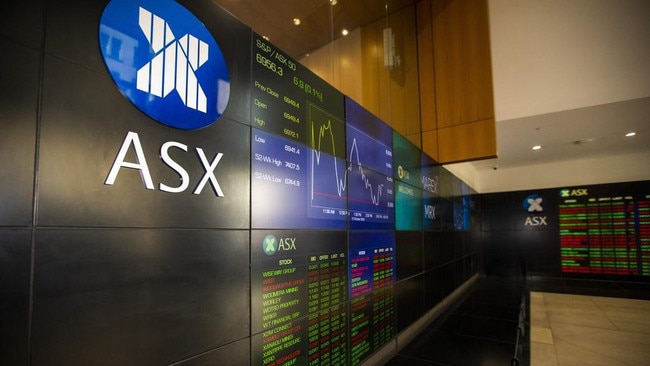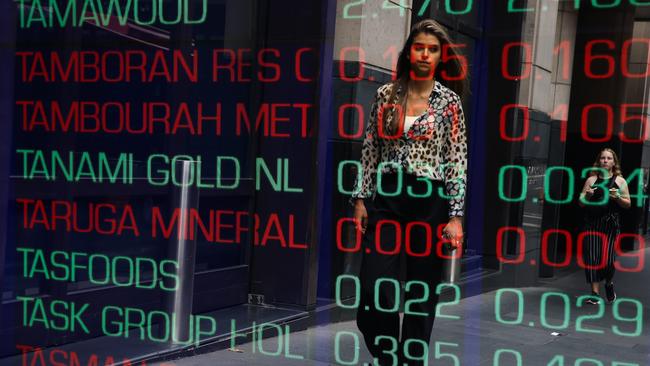Domino’s pummelled on share market as ASX rises
Domino’s Pizza has suffered a huge blow to its share price despite reaching a six year sales high due to one issue.
Domino’s share price has received a thrashing despite reaching new sales heights as the Australian share market rallied on Thursday to a three-week high.
The S&P/ASX200 closed up Thursday, gaining 36.20 points or 0.48 per cent to 7,555.40, despite mixed trading on Wall Street, with losses offset by strong gains US technology stocks, including Netflix which leapt 10.70 per cent after a subscriber boost.

On Wall Street, the S&P 500 rose added 0.1 per cent and set a record for a fourth day straight while the Nasdaq gained 0.4 per cent.
The Dow Jones fell 0.3 per cent.
The biggest loser in Australia was by far Domino’s Pizza, as the market reacted badly to the announcement yesterday that it had poorly timed its expansion into Japan, Taiwan and Malaysia.
Domino’s shares plummeted 31 per cent to $39.51, despite Australian and New Zealand branches delivering their best sales performance in six years, as a 8.9 per cent drop in same-store sales in Asia saw the brand receive a walloping.
“Domino’s finished 2023 as the fastest growing pizza company in Australia, with marketing reaching new customers through non-traditional media as well as through the global partnership with Uber,” a hopeful trading update began.
Despite expecting the Christmas trading period to “deliver a turnaround in sales performance in Japan”, it was not “sufficient to deliver positive Network Sales for December”.

The big supermarkets have each received a blow to their share price after Prime Minister Anthony Albanese announced the consumer watchdog would conduct a year-long price inquiry into the industry after accusations of gouging.
“The ACCC has significant powers – and it is the best and most effective body to investigate supermarket prices,” Mr Albanese told the National Press Club.
“To look at how things like online shopping, loyalty programs and changes in technology are impacting competition in the industry and to examine the difference between the price paid at the farm gate – and the prices people pay at the checkout.
“For me, it’s this simple. When farmers are selling their product for less, supermarkets should charge Australians less.”
Woolworths has said it would assist the inquiry, noting it expects inflation to “continue to moderate” throughout 2024.
Meanwhile, Coles defended its pricing in a statement released after the announcement, saying that the company is “working hard to keep groceries affordable”.
“We are doing this against a challenging environment of high inflation, with rising costs that affect the whole economy including farmers, suppliers and retailers, and impact the prices customers pay at the checkout.

Coles said it had kept its prices below the nation’s rate of inflation for the past four years.
“We have worked closely with the ACCC in previous inquiries, and we will do so again,” the company said.
“We welcome the ACCC’s examination of the factors that affect prices in the grocery supply chain and look forward to illustrating how we provide value to our customers and our positive relationships with our supplier partners.”
Five of the 11 sectors finished in the red.
The materials sector received the largest boost on the share market today with a lift of 1.48 per cent after iron ore futures hit a two week high close to $136 a tonne.
That was led by Rio Tinto which received a 2.80 per cent boost to raise its share price to $132.63, followed by BHP with a 1.45 per cent decrease to $47.54.
The bankers were mixed on Thursday, with NAB down 0.25 per cent to $31.79.
Westpac led in terms of gains, up 0.59 per cent to $23.70 followed by ANZ which saw its share price rise 0.30 per cent to $26.67 and Commonwealth up 0.14 per cent to $114.86.




To join the conversation, please log in. Don't have an account? Register
Join the conversation, you are commenting as Logout